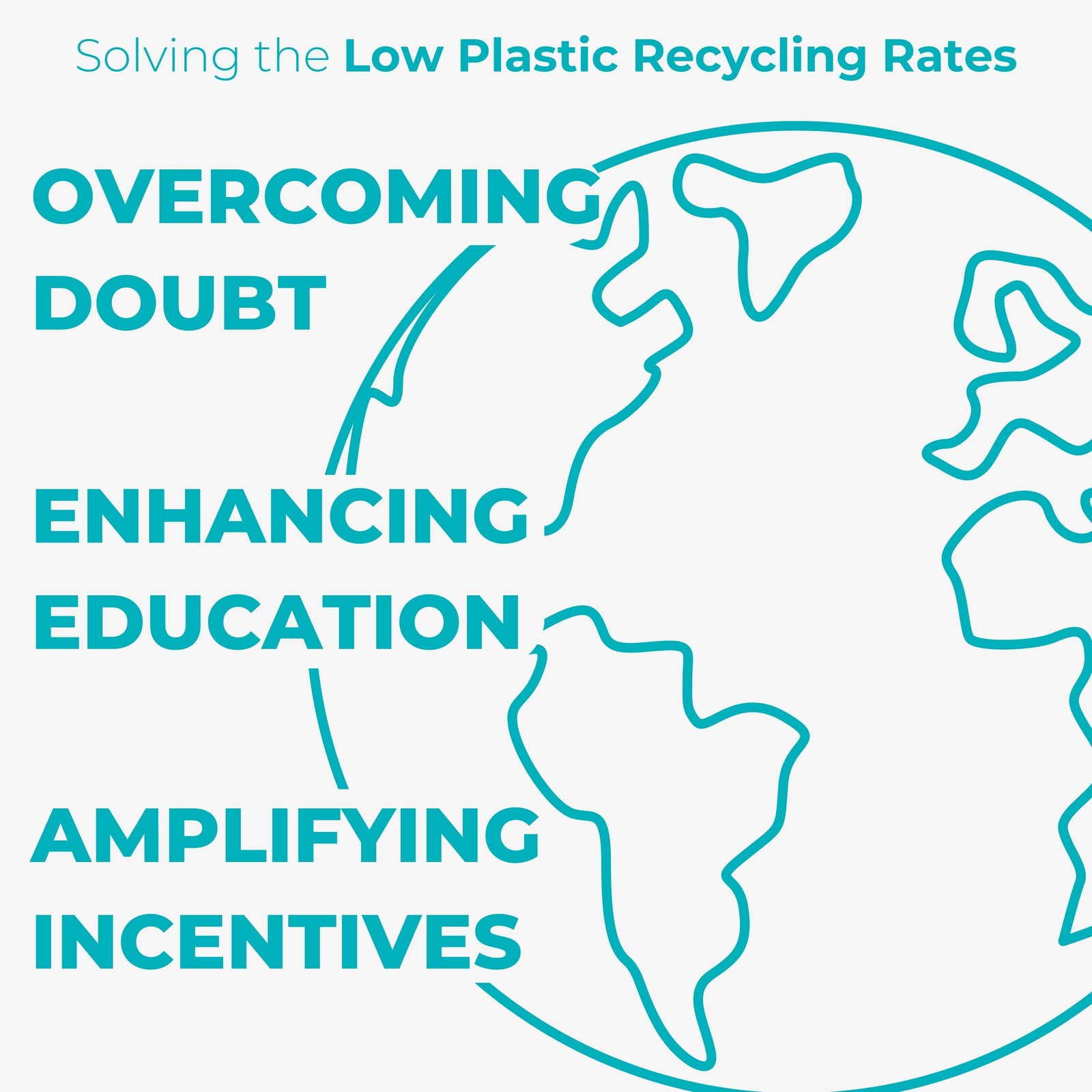Solving Low Plastic Recycling Rates: Insights by Danny Schrager, CEO of Geared for GREEN (Part 2 of 2)

In my previous post, I highlighted the three main barriers to higher plastic recycling rates: Doubt, Engagement, and Incentive. These factors not only hinder consumer participation and lower recycling rates but also impact the creation of value in the recycling process.
Today, I want to share some of the innovative solutions we're implementing at Geared for GREEN, along with our exciting Green “Innovation Initiatives” for 2024, aimed at overcoming these challenges to boost plastic recycling rates and enhance value creation.
Solution 1: Overcoming Doubt Doubt significantly impedes recycling efforts. With rampant news and social media reports showing plastics in landfills and natural habitats, alongside prevalent greenwashing, trust is at an all-time low. To combat this, we've introduced "Journey of Your Recyclables" QR code videos for our clients. These customized videos transparently showcase the recycling journey - from collection to transformation into sustainable materials and products.

Solution 2: Enhancing Education & Engagement Engagement is key to successful recycling programs. We aim to forge a deeper connection between consumers and the circular economy by creating transparent initiatives. These not only demystify recycling processes but also demonstrate the sustainable products derived from recycled materials.

Solution 3: Amplifying Incentive.
The lack of adequate incentives is a significant barrier to increasing recycling rates. Our “Learn to Earn” Instant Incentive Activations technology platform sharply addresses this gap.
Through “Learn to Earn” QR codes at on-site activations at events, communities, campuses, and corporate sustainability programs, consumers gain access to immediate and substantial rewards, such as sustainable product discounts at major retailers, free eco-friendly merchandise at campuses and events, hotel rewards, and more, by engaging with brief educational content.
This year we are launching our nationwide end of use circular economy recycling program, in collaboration with Fedex, called Circular Express box. Here consumers and businesses can purchase a Circular Express Box, fill it with approved recyclables, then easily ship it mill direct to us, for circular economy processing. As examples, crushed water bottles are recycled into Champions for GREEN sustainable apparel. Plastic poly bags are recycled into brand new Apex Sustainable Furnishings, furniture, fixtures and more. Because of this added convenience, customers can not only increase their recycling rates, but they can also gain significant discount incentives to purchase back circular economy products made from their recyclables.
Extended Impact of Our Initiatives:
The success of our strategies at Geared for GREEN extends far beyond mere statistics. We've seen a significant shift in both consumer and business mindsets. Clients who have implemented our "Journey of Your Recyclables" program report a noticeable increase in recycling participation and enthusiasm. These stories underscore the effectiveness of transparency in building trust and engagement in recycling efforts. Similarly, our “Learn to Earn” activations have done more than just provide incentives; they've fostered a community of environmentally aware individuals. These people have become advocates for sustainability, actively promoting and encouraging sustainable practices within their networks. This kind of ripple effect is crucial in our mission to redefine recycling and construct sustainable futures. It shows that addressing the core issues in recycling can lead to extensive and lasting environmental benefits.
As part of our 2024 initiatives, we're excited to expand our “LEARN TO EARN” & “INSTANT INCENTIVE” programs nationwide, integrating them into recycling bins across various locations to redefine recycling for a sustainable future.
By addressing Doubt, Engagement, and Incentive, we at Geared for GREEN are committed to enhancing recycling rates and fostering circular economies that transform plastic waste into valuable products. Join us in redefining recycling for a more sustainable future.
Danny Schrager



